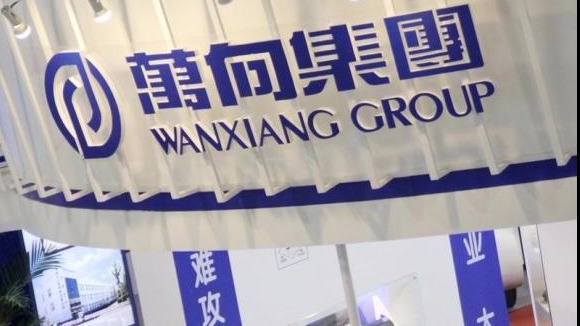A second China shadow bank has hit financial troubles stemming from the country’s property sector crisis.
Wanxiang Trust, an asset management firm in Hangzhou owned by the Wanxiang Group, has delayed payments worth several hundred million dollars on some of its investment products.
State-owned media outlet Cailianshe revealed last Friday that Wanxiang had missed interest payments on two trust products in August that had a total outstanding value of 1 billion yuan ($141 million).
It said dozens of investors who bought products that were invested in the medical sector protested last week at the office of a financial regulator in Zhejiang province and sought answers about the trust’s use of their funds.
ALSO SEE: China’s Push to Reform Historic Residency Rules Hits Hurdles
That news was confirmed on Tuesday, when state-owned 21st Century Business Herald reported that the trust firm had delayed payments on a number of maturing products worth several billion yuan — some of which were invested in real estate.
The reports come two weeks after Zhongzhi Enterprise Group, one of China’s biggest and most troubled shadow banks, revealed it had liabilities of up to $64 billion after missing payments to investors in August.
Authorities are now investigating the collapse of Zhongzhi amid suspicion of possible criminal offences. Indeed, two executives from Zhongzhi were reported missing last week and suspected to have been taken into custody.
Wanxiang Trust – established in 2012 by Wanxiang Group, one of China’s largest private conglomerates – managed assets worth 89.25 billion yuan ($12.6 billion) at the end of 2022, according to a report by CNN, which said that over half (58%) were invested in real estate.
Several ratings agencies have warned recently of trouble in China’s property sector spilling over into the shadow banking industry, which is a sector worth close to $3 trillion and refers to financial dealings that takes occur outside the traditional banking system.
Wanxiang Trust sold products linked to Kaisa Group, a property developer Kaisa Group that defaulted in 2021, the 21st Century Business Herald said. It also invested in a local government financing vehicle in Guizhou province which had defaulted on some loans.
Some analysts have warned of greater instability in China’s shadow banks because they were a major source of funds for property developers, many of which have defaulted or are mired in debt after Beijing introduced its notorious ‘Three red lines’ policy three years ago to reduce the massive debts plaguing the property sector.
The liquidity crunch at trust firms is expected to hit the local bond market as well as Chinese companies and local government funding vehicles. China’s local government debt was put at $12.6 trillion in 2019.
- Jim Pollard
ALSO SEE:
Two Executives From China’s Zhongzhi Missing After Collapse
China to Probe Troubled Shadow Bank Steeped In $64 Billion Debt
China Wealth Manager Zhongzhi Admits to $64 Billion in Liabilities
China Asks Banks to Roll Over $13tn Local Debt at Lower Rates
Struggling Chinese Asset Manager Zhongzhi Looking at Debt Rejig
China Trust’s Missed Payments Highlights Slowdown Risks – SCMP
China’s $13tn Provincial Debt Crisis Threatens to Spill Over
Biden Likens China to ‘Ticking Time Bomb’ Due to Economic Woes
























